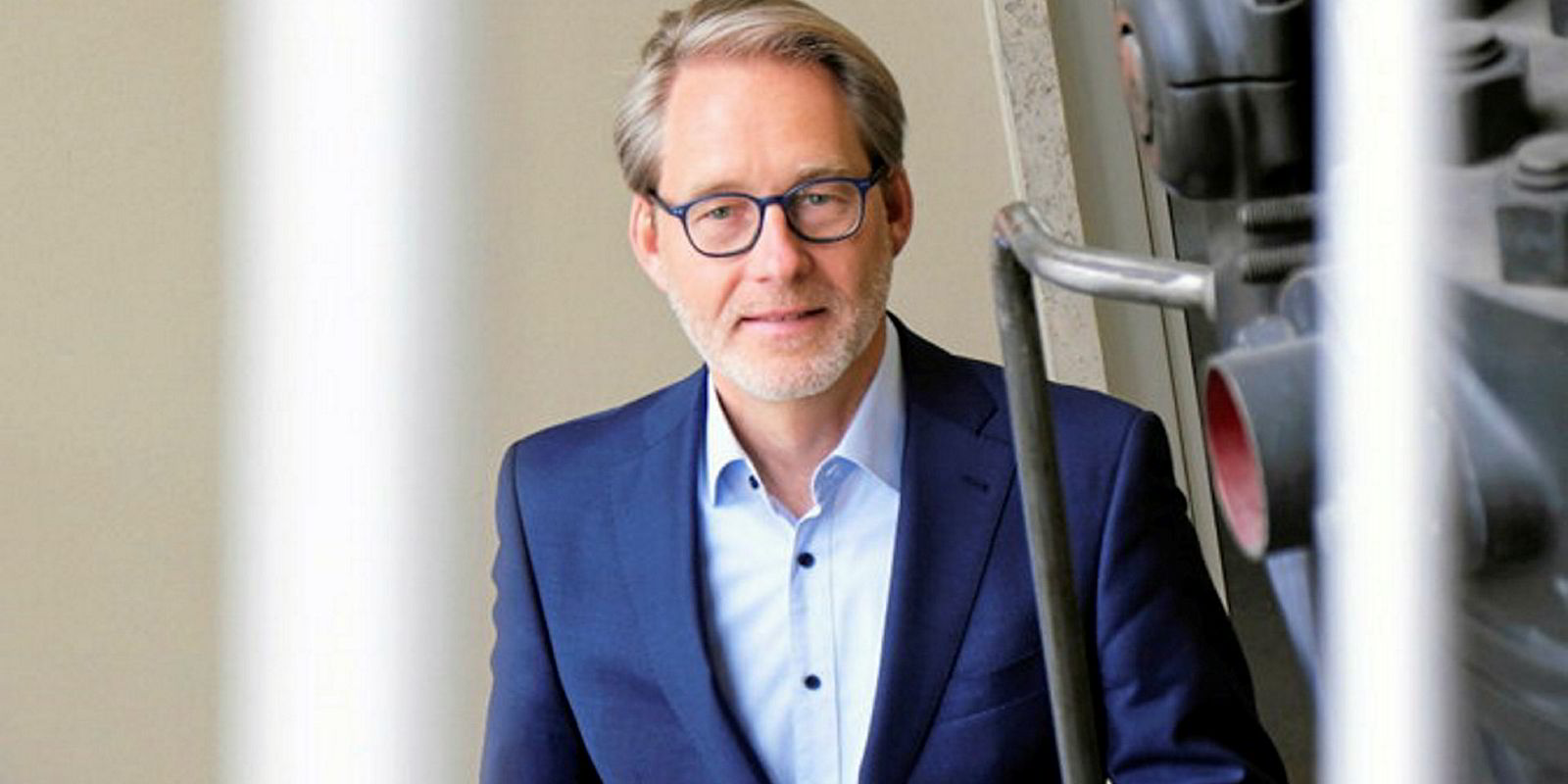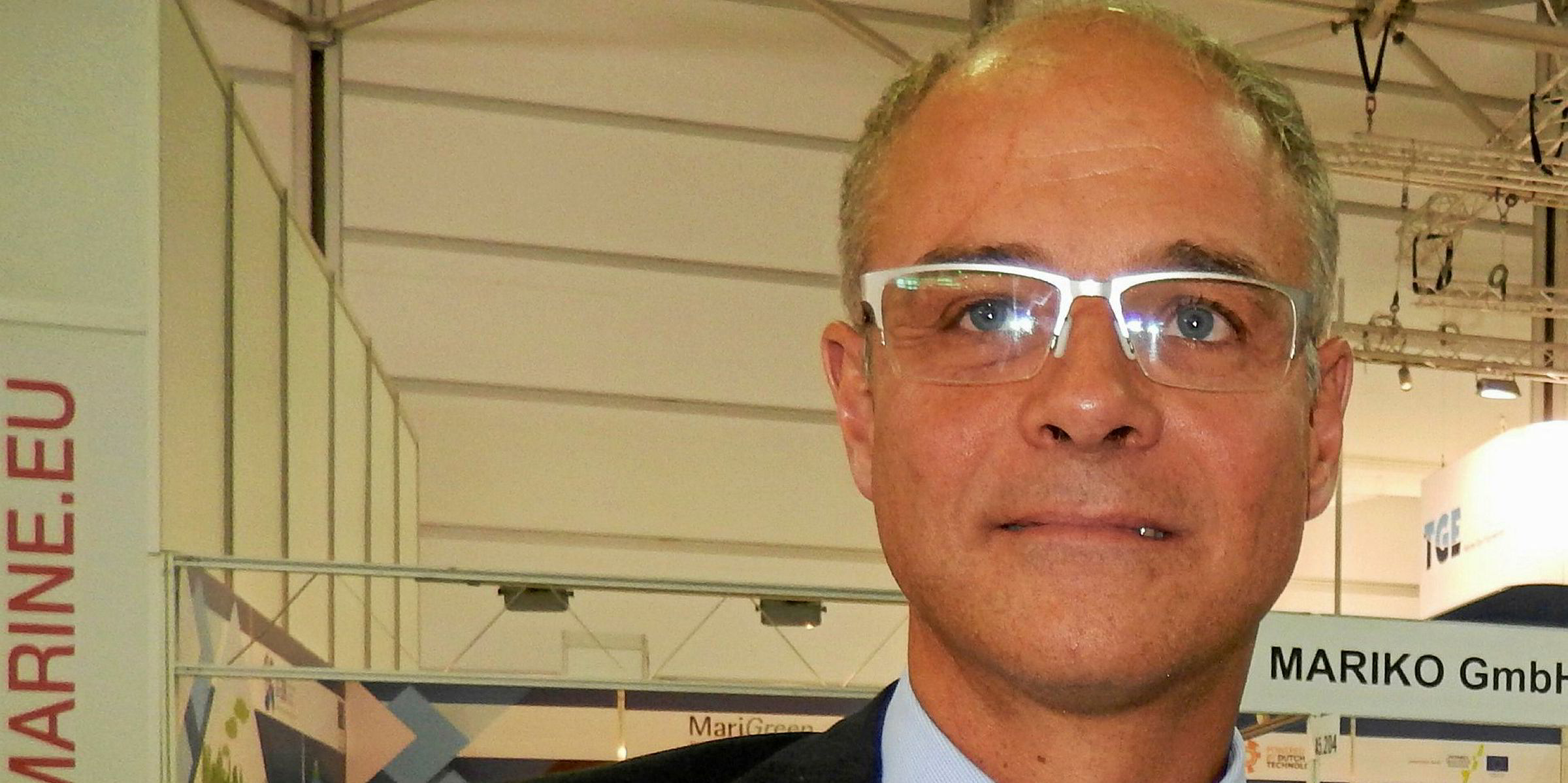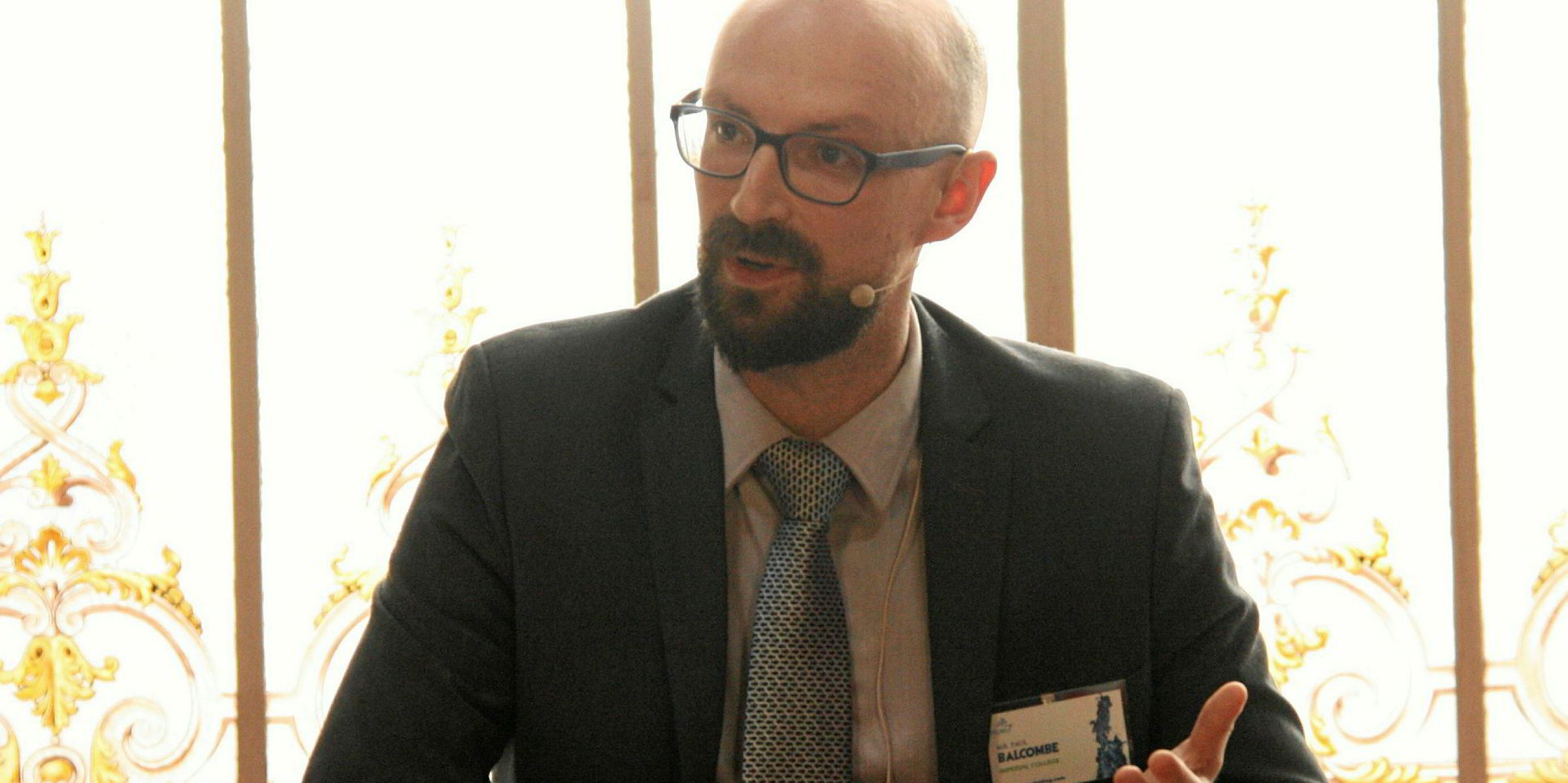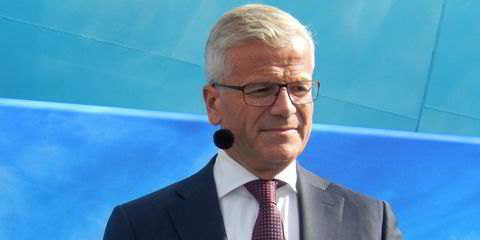Engine manufacturer WinGD has unveiled its next generation of X-DF slow-speed, dual-fuel engines with a new technology that it claims will slash methane emissions by up to 50% and cut fuel consumption.
Launching the much-rumoured X-DF2.0, WinGD said the engines will feature intelligent control by exhaust recycling (iCER).
The iCER system is designed to deliver enhanced combustion control through the use of inert gas.
WinGD global director of sales Volkmar Galke said: “By adjusting the recirculation rate of inert gas and controlling parameters like fuel admission and ignition timing, we can increase compression ratios for greater efficiency."
The company said the result is a reduction in methane slip — the amount of methane that is released into the atmosphere during the combustion process — of up to 50% when using LNG and make a significant reduction of fuel consumption, of 3% in gas mode and 5% in diesel mode.
WinGD vice president of research and development Dominik Schneiter revealed that where the current methane slip for the X-DF1.0 is around 2 to 2.5 grams per kilowatt-hour in the X-DF2.0 it can be cut to 1 to 1.2 grams per kilowatt-hour, which he described as "a massive reduction" and a very low number compared to other engines in the industry.
Galke said the iCER can be retrofitted and ships can be built iCER-ready to help accommodate this.
WinGD said the technology is currently completing trials at one of its dedicated test engine facilities in what is the final step in a two-year testing programme. The company is also finalising plans for a pilot installation.
WinGD said iCER and all future X-DF2.0 technologies will be available for all new X-DF engines.
"By advancing the performance of dual-fuel engines, X-DF2.0 will help shipowners prepare for shipping’s transition to carbon-neutral fuels," WinGD said.
The company said its X-DF2.0 technologies will allow for improved engine performance with both LNG and future carbon-neutral fuels.
It said these technologies minimise methane slip with the expectation that these emissions will be regulated by IMO to help meet its 2050 greenhouse gas targets. Improved fuel efficiency will also be a key factor in reducing emissions further during the first phase of the transition.
The company added that X-DF engines can also burn carbon-neutral synthetic or bio-derived LNG when it becomes available.
Galke said the company's X-DF engines are already widely used, with more than 500,000 hours operating experience.
"Our next-generation X-DF2.0 technologies will prepare our engines for even better performance, both with LNG and with the future fuels to come," he said.







